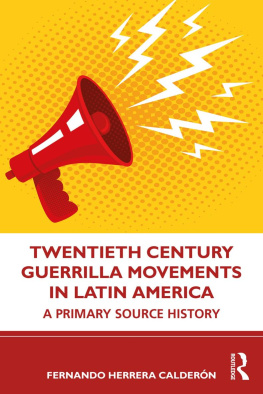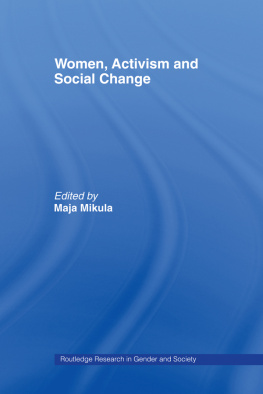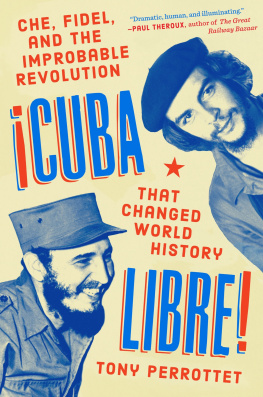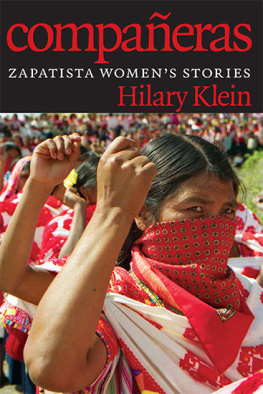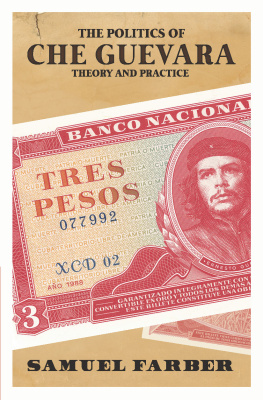A project like this book, which is the result of more than a decades work, is invariably an example of what Latin Americans call trabajo de hormigas, or ants work. It is unfair for me to take sole credit for something that would have never happened without the cooperation of many individuals, all contributing their parts to the anthill. First and foremost, I am grateful to the hundreds of Latin American women, and scores of Latin American men, who helped me out, generously sharing their time and knowledge, sometimes even taking me into their homes.
To the following citizens or residents of Nicaragua, I owe a great deal: Angela Rosa Acevedo, Agnes (Xochiquetzal), Raquel Aguirre, Humberto Aragn Morales, don Manuel Aragn, doa Teodora Morales de Aragn, and the whole Aragn Morales Fong family, Klemen Altamirano, Danilo Barrios, Maribel Arostegui Bravo, Gladys Baez, Amy Bank, Blanca (CST), Mara Teresa Blandn, Mara Lourdes Bolaos, Alan Bolt, Mary Bolt, Berta Ins Cabrales, Elizabeth Castro de Velsquez, doa Elena Cajina de Quinez, Lupita Crdenas, Silvia Carrazco, Amalia Chamorro, Georgina Cordn, Ana Criquillion, Mirna Cunningham, Jos Dvila, Violeta Delgado, Csar Escobar, Yolanda Espinoza, Ana Esquivel, Rosa Julia Esquivel, Alan Fajarda, Fatima (ISNIM), Azucena Ferrey, Mario Flores, Hazel Fonseca, Briceyda Fuentes, Idalia Garca, Luis and Veronica Gonzlez, Violeta Granera de Sandino, Dora Herrera, doa Laura and Nancy, Patricia Lindo, Carla Lpez, Mara Isabel Lpez, Rosa Argentina Lpez, Rosalio Lpez, Marvin Marenco, Arle Martnez, Julio Martnez, Tania Mairena, Marcos Membreo, Lesbia Mendieta, Nora Meneses, Donald Mndez, Juan Jos Montenegro, Sofa Montenegro, Vanexa Moralla Mora, Zoilamrica Narvaez, Reinaldo Nez, Gloria Ordez, Ligia Orozco, Patricia Orozco, Pedro Ortega Mndez, Alba Palacios, Dina Palacios, Andrea Prez, Paola Prez Alemn, Mara Auxiliadora Prez de Matus, Elena Quinez Cajina and the whole Quinez Cajina family, Mario Quintana, Ana Quirs, Carolina Ramrez, doa Esperanza de Ramos, don Joaqun Ramos and the whole Ramos family, Sandra Ramos, Ftima Reyes, Miriam Reyes, Napoleon Rios, Hortensia Rivas, Ninoska Robles de Jarqun, Matilde Rocha, Nubia Rocha, Irene Rojas, Reyna Isabel Rodrguez, Julio Ruiz Morazn, Feliz Ruiz, Liliana Salinas, Rosa Argentina Silva, Judith Silva, Nubia and Maritza Silva Flores, Dora Mara Tllez, Ursula Tht, Doris Tijerino, Mara Auxiliadora Valario, Mil Vargas, Bladimir Varela, Sara Velzquez, Reina Isabel Velzquez, Donna Vukelich, Lois Wessel, Dorotea Wilson, Yolanda Zamora, Ftima Zelaya, Rosa Marina Zelaya, and Jos Antonio Zepeda.
In El Salvador, the following people generously shared their time and insights with me: Elba Aguilar, Sonia Aguinada, Irma Amaya, Ana Zulema Argueta, Carmen Argueta, Luis Alberto Avils, Sonia Baires, Luca Beltrn, Silvia Briseo, Gladys Colato, Cristina (Flor de Piedra), Deysi Cheyne, Sister Nydia Delgadillo, Rosibel Flores, Doris Garca, Marta Elena Garca de Rodrguez, Esperanza Gmez, Rebeca de Gonzlez, members of the Grupo de Identidad 2001 of the UCA, Sonia Gualdamez, Isabel de Guevara, Norma Guevara, Yolanda Guirola, Isabel Hernndez, Mara Julia Hernndez, Virginia Hernndez, Morena Herrera, Juana Lemus Flores, Zoila de Innocenti, Eva Linares, Rosi Flores, Aracelis Lpez, Ofelia Lpez, Ana Guadalupe Martnez, Omar Martnez and Juanita, Yanira Marroqun, Mirna Medina, Carmen Elisia Meja, Guadalupe Meja, Irma Meja, Lety Mndez, Mara Trinidad Meja, Conchita Menjivar, Violeta Menjivar, Urania Morales, Clara Murguialday, Alicia Panamea de Garca, Lorena Pea (Rebeca Palacios), Marina Pea Flores, Guadalupe Portillo, Isabel Ramrez, Sandra Ramrez, Mara Consuelo Raymundo, Aura Rivera, Carmen Rodrguez, Mirna Rodrguez, Amrica Romualdo, Marielos Romualdo, Marta Segovia, Mara Elena Snchez, Sara Quintanilla, Marta Valladares (Nidia Diaz), Antonia Vichs, Silvia Vidal, and Evelyn Zelaya.
Unfortunately, the ongoing nature of the war in Chiapas, and the fact that many peaceful human rights promotors have been victimized by military and paramilitary violence in recent years, makes me hesitate to publicly thank the many who generously offered me their time and insights. Given the difficult circumstances within which they must work, I am especially grateful to the many who permitted me to interview them.
A number of institutions offered important support over the course of my researching and writing this book. The sociology departments at the Universidad Centroamericana (UCA) in Managua and San Salvador were quite helpful. Special thanks are due to Marcos Membreo in Managua and Zoila de Innocente in San Salvador. The staff and volunteers with the Boston chapter of the Committee in Solidarity with the People of El Salvador (CISPES) and its San Salvador affiliate, the Centro Internacional de Solidaridad (CIS), especially Sarah Clarke, Mike Prokosch, and Marceline White, played a big role in my initiation into the world of Salvadoran politics. Special thanks are due to David Amdur of the national CISPES office for sharing his insights, along with the photo for the front cover of this book. The staff at CIESAS-Sureste (Centro de Investigaciones y Estudios Superiores en Antropologa Social) in San Cristbal de las Casas, Chiapas, especially Gabriela Vargas, Aida Hernndez, Xochitl Leyva, and Guadalupe Salazar were tremendously helpful during 1995, when I was an affiliated guest researcher, and during my later visits to the region. I am grateful to the staff at the Center for U.S.Mexican Studies (at the University of California, San Diego) for helping make that institute a wonderful place to be when I was a visiting research fellow in the winter of 199798. Finally, Id like to thank the staff at Global Exchange for organizing a womens tour of Cuba in October 1998, with special thanks to Teresa Walsh and Diana Russell.
For its moral and economic support, I thank the gender studies section of the Latin American Studies Association (LASA) for awarding me first place in the Elsa Chaney Competition in 1998 for an earlier version of . I also would like to thank the staff at the Carrie Chapman Catt Center for the Study of Women and Politics for awarding me the Carrie Chapman Catt Prize in 1999 in support of the ongoing research project that has become this book.
The final critical source of economic support for this project was Larry Breitborde and the rest of the administration at Knox College. Because the many requests I made for faculty research grants were never denied, it was possible to make the repeated trips to Latin America that were necessary in researching this book. Very special thanks go to many people at Knox College for interest in my work, especially Brenda Fineberg. Few people ever have the privilege of returning to teach at the very place where they spent their college years. Thanks to all current and former faculty whose courses influenced my thinking on an array of topics. Special thanks to the two faculty members who had the greatest influence on my college years and to what I was to become (for better or worse): Bob Seibert and Isabel Livosky. Thanks also to students who were kind enough to take my courses and engage me in years of interesting conversations, especially to those students who directly supported the project through their own research: Alicia Stephens, James Mutti, Liz Rice, and Monica Novak.


